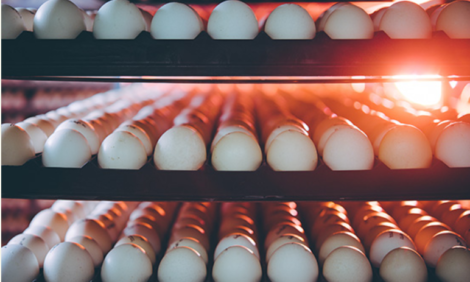



Egyptian Producers Struggle with Restrictions
EGYPT - The poultry industry is threatened by the high prices of feed and the ban of poultry transportation between districts, which is in place to prevent avian flu spreading.In addition to this, there has been a severe reduction in the number of operating slaughterhouses, with some slaughterhouses now being used to produce eggs and breed turkeys.
According to The Egyptian Gazette, the poultry producers' union has called for fast solutions to the problems. Another problem is that the role of the Chicken Stock Exchange has declined, which means that prices depend on supply and demand.
The executive manger of the Chicken Stock Exchange in el-Qaliubia district, Ahmed Nassar, says that el-Qaliubia produces 70 per cent of the country’s chickens.
“However, productivity is falling in el-Qaliubia, while it is increasing in el-Sharqia and el-Beheira governorates,” he says, adding that most of el-Qaliubia’s 4,500 poultry farms have stopped working.
“Others are now being used to produce eggs and breed turkeys, because Law 70/2009 bans the transportation of live chickens from one district to another.
“Another problem is the severe shortage of slaughterhouses. Meanwhile, chicken breeding is limited to the summer season because bird flu is more dangerous in winter, while the prices of feed and vaccines have skyrocketed,” added Mr Nassar.
He argues that the best solution is to allow chickens to be transported among districts under strict medical supervision. Mohamed Abdel-Maqsoud, who owns a farm that produces eggs, told Al-Messa’ local newspaper that he is now running at a loss because the prices of chickens are fluctuating, while the price of fodder has shot up to 3,500 Egyptian pounds (EGP; about US$580) per tonne.
“The big pharmaceutical companies monopolise the drugs we need and there is a shortage, because there is no governmental control. This is why many poultry farmers have switched to producing eggs,” he added.
Shehab Fathi, another chicken farm owner, is one of those farmers who has switched to producing eggs, because they are easier to transport than chickens, while production continues all year round. Ahmed Soleiman, a big turkey producer, explains that he makes more money out of breeding turkeys than chickens.
“Imported turkey chicks have already been vaccinated; they are bred in a dry climate and need less feed than chickens,” he stresses.
“Turkey breeding requires a lot of capital, so some producers join forces and share the profits,” says Fadel Abdel-Rehim, who also owns a turkey farm.
Mohamed el Shafei, deputy chairman of the Chicken Producers Union, says that these days the retailers fix the prices the public pay.
“Egypt produces around 850 million chickens per annum, which is a lot for a country in recession, where many people are poor. The fact that tourism is in the doldrums has also hit the poultry producers hard.
“The law banning the transportation of live birds among districts is another big problem, as Egyptians prefer freshly killed poultry to frozen birds,” he explains.
Further Reading
| - | You can visit the Avian Flu page by clicking here. |








